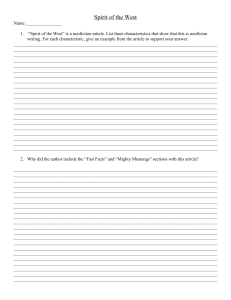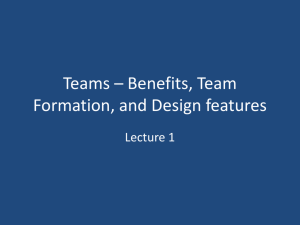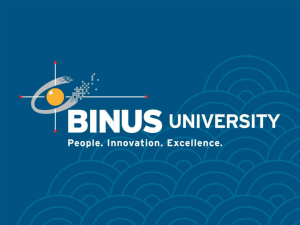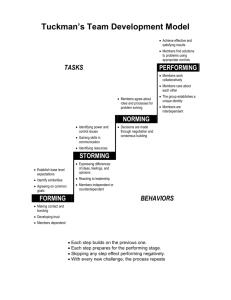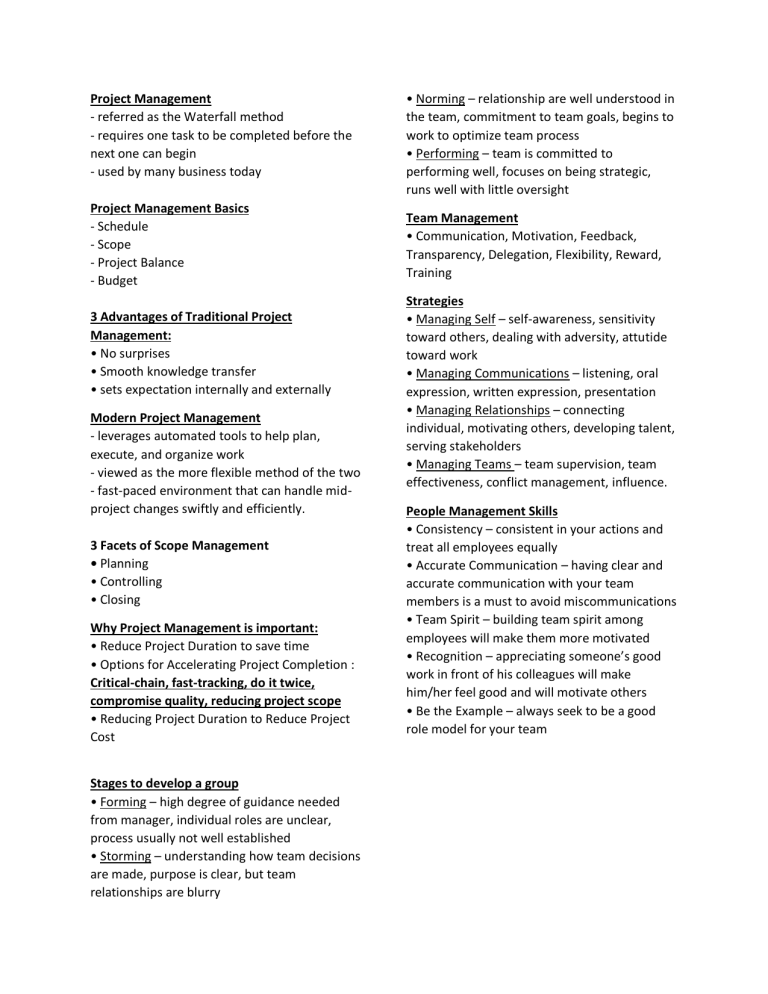
Project Management - referred as the Waterfall method - requires one task to be completed before the next one can begin - used by many business today Project Management Basics - Schedule - Scope - Project Balance - Budget 3 Advantages of Traditional Project Management: • No surprises • Smooth knowledge transfer • sets expectation internally and externally Modern Project Management - leverages automated tools to help plan, execute, and organize work - viewed as the more flexible method of the two - fast-paced environment that can handle midproject changes swiftly and efficiently. 3 Facets of Scope Management • Planning • Controlling • Closing Why Project Management is important: • Reduce Project Duration to save time • Options for Accelerating Project Completion : Critical-chain, fast-tracking, do it twice, compromise quality, reducing project scope • Reducing Project Duration to Reduce Project Cost Stages to develop a group • Forming – high degree of guidance needed from manager, individual roles are unclear, process usually not well established • Storming – understanding how team decisions are made, purpose is clear, but team relationships are blurry • Norming – relationship are well understood in the team, commitment to team goals, begins to work to optimize team process • Performing – team is committed to performing well, focuses on being strategic, runs well with little oversight Team Management • Communication, Motivation, Feedback, Transparency, Delegation, Flexibility, Reward, Training Strategies • Managing Self – self-awareness, sensitivity toward others, dealing with adversity, attutide toward work • Managing Communications – listening, oral expression, written expression, presentation • Managing Relationships – connecting individual, motivating others, developing talent, serving stakeholders • Managing Teams – team supervision, team effectiveness, conflict management, influence. People Management Skills • Consistency – consistent in your actions and treat all employees equally • Accurate Communication – having clear and accurate communication with your team members is a must to avoid miscommunications • Team Spirit – building team spirit among employees will make them more motivated • Recognition – appreciating someone’s good work in front of his colleagues will make him/her feel good and will motivate others • Be the Example – always seek to be a good role model for your team
